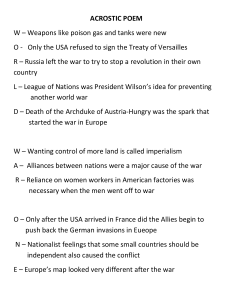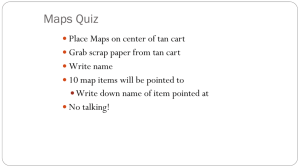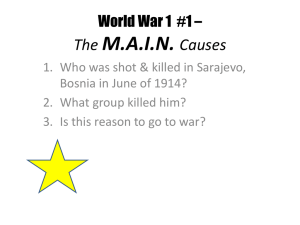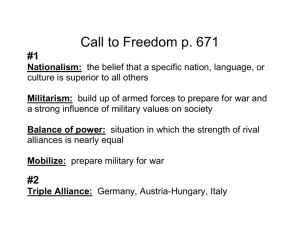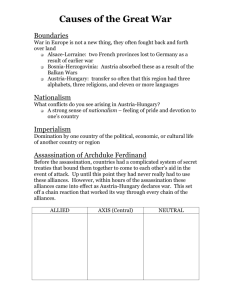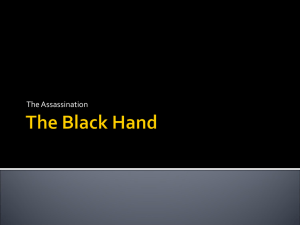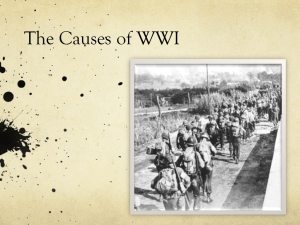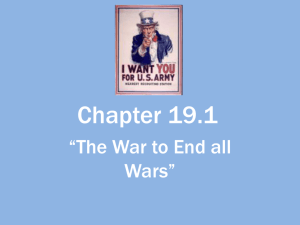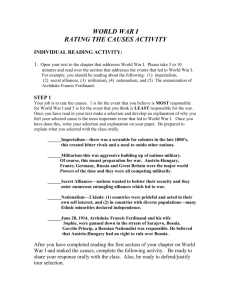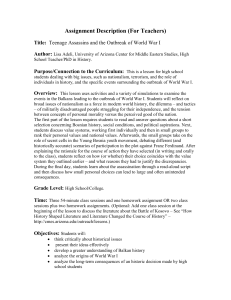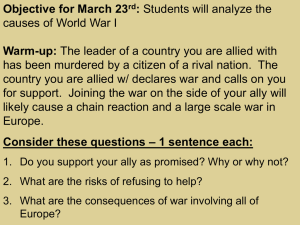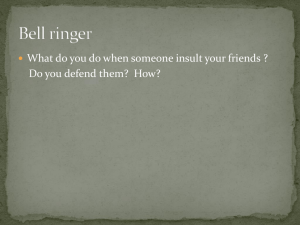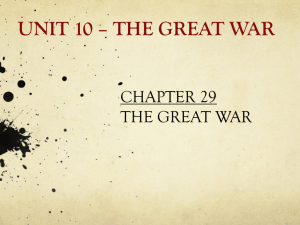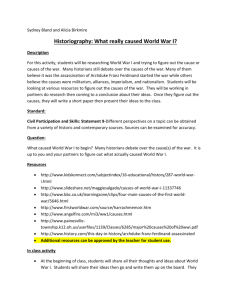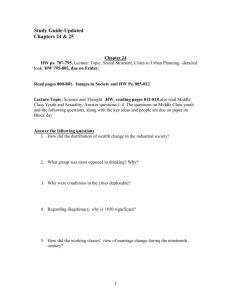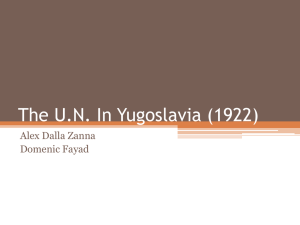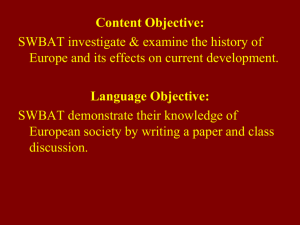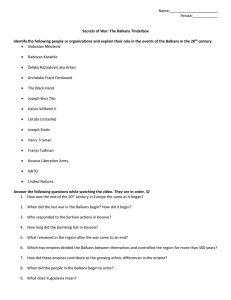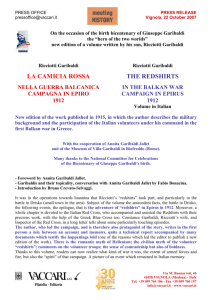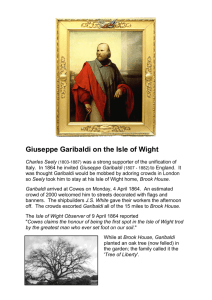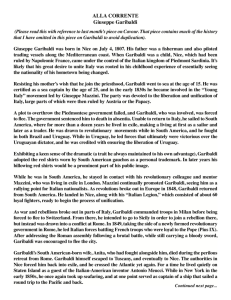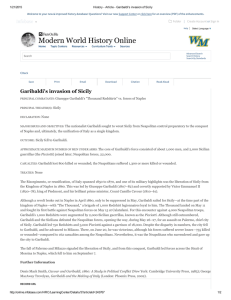World War I Test Review Sheet
advertisement
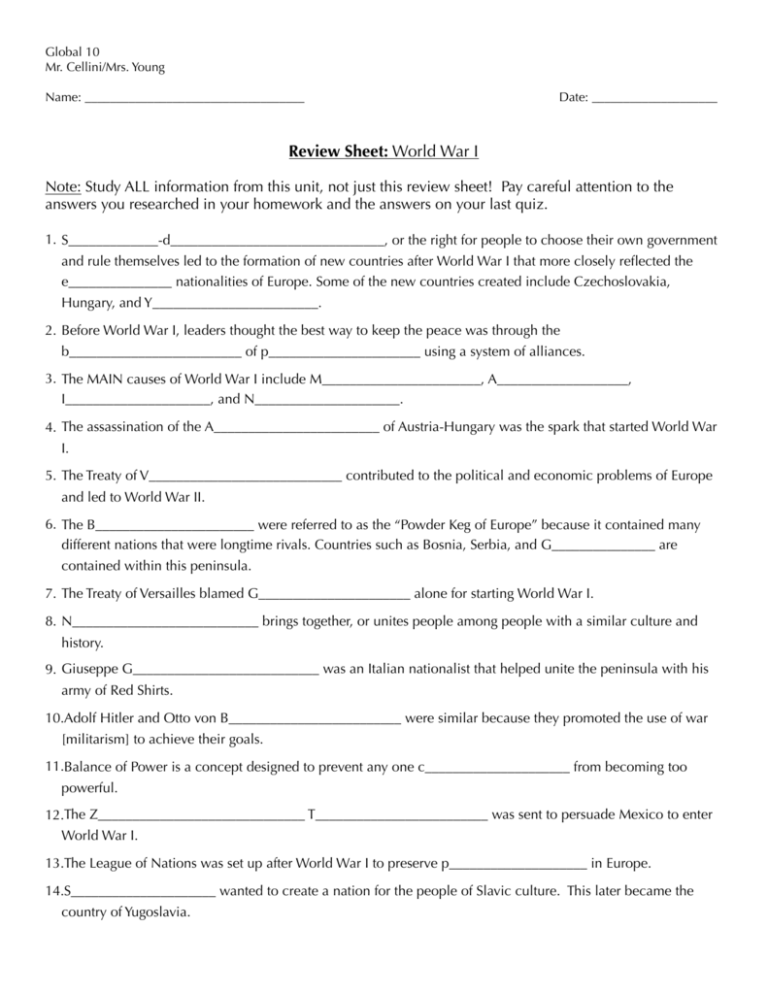
Global 10 Mr. Cellini/Mrs. Young Name: ___________________________________ Date: ____________________ Review Sheet: World War I Note: Study ALL information from this unit, not just this review sheet! Pay careful attention to the answers you researched in your homework and the answers on your last quiz. 1. S_____________-d_______________________________, or the right for people to choose their own government and rule themselves led to the formation of new countries after World War I that more closely reflected the e_______________ nationalities of Europe. Some of the new countries created include Czechoslovakia, Hungary, and Y________________________. 2. Before World War I, leaders thought the best way to keep the peace was through the b_________________________ of p______________________ using a system of alliances. 3. The MAIN causes of World War I include M_______________________, A___________________, I_____________________, and N_____________________. 4. The assassination of the A________________________ of Austria-Hungary was the spark that started World War I. 5. The Treaty of V____________________________ contributed to the political and economic problems of Europe and led to World War II. 6. The B_______________________ were referred to as the “Powder Keg of Europe” because it contained many different nations that were longtime rivals. Countries such as Bosnia, Serbia, and G_______________ are contained within this peninsula. 7. The Treaty of Versailles blamed G______________________ alone for starting World War I. 8. N___________________________ brings together, or unites people among people with a similar culture and history. 9. Giuseppe G___________________________ was an Italian nationalist that helped unite the peninsula with his army of Red Shirts. 10.Adolf Hitler and Otto von B_________________________ were similar because they promoted the use of war [militarism] to achieve their goals. 11.Balance of Power is a concept designed to prevent any one c_____________________ from becoming too powerful. 12.The Z______________________________ T_________________________ was sent to persuade Mexico to enter World War I. 13.The League of Nations was set up after World War I to preserve p____________________ in Europe. 14.S_____________________ wanted to create a nation for the people of Slavic culture. This later became the country of Yugoslavia. 15.A list of demands, often with consequences for not meeting those demands, is referred to as an u____________________________. 16.R_________________________ are payments for war damages. 17.France regained the territories of A_____________________ and L_____________________ after World War I. 18.Unrestricted submarine warfare, sympathy for the Allies, and a desire to make the world safe for democracy are all reasons why the U________________________ S____________________ entered WWI. 19.The British entered Word War I because Germany marched through B______________________. 20.The area between trenches was called N__________ M_____________ L______________. 21.The collapse of the O__________________________ Empire was at the heart of the Eastern Question. It was also known as the “Sick Man of Europe.” 22.B___________________ was annexed by Austria-Hungary prior to World War I. This led to the assassination of Archduke Franz Ferdinand. 23.G_________________________ P___________________ was the Serbian terrorist of the Black Hand that assassinated the Archduke in Sarajevo, Bosnia. 24.The z______________________________ was an economic union of German states. 25.World War I was the first time that many new technologies appeared in a war, such as poison gas, t____________, and grenades. 26.Kemal A______________________ wished to modernize and westernize the nation of Turkey. Women obtain suffrage [voting rights] under his rule. 27.Nationalist leaders, such as: Garibaldi, Cavour, and Bismarck sought promote u________________________ of their countries through nationalism. Word Bank: • Zimmerman Telegram • Country • Bosnia • No Man’s Land • Archduke • Militarism • Balance of Power • Gavrilo Princip • Imperialism • Alliances • Serbia • Garibaldi • Nationalism (twice) • Balkans • Ethnic • Lorraine • Ultimatum • Zollverein • Peace • Reparations • Tanks • Versailles • Alsace • Greece • Germany • Self Determination • Yugoslavia • United States • Belgium • Ataturk • Bismarck • Ottoman • Unification
